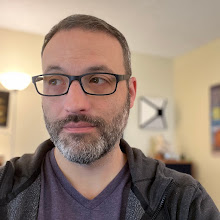Going to graduate school for your PhD is a risky endeavor. Here’s what’s on my mind:
Opportunity cost. By taking 5-6 years for a job that is very low pay (effectively at subsistence levels), you are forgoing a higher income and the advancement and promotions that 5-6 years work in the industry would give you. Assume a portion of that difference is invested at a return of 3-7%, and it’s a pretty large sum of money. Also, in the industry, a masters degree almost takes you as far a PhD would. Going for the masters-only has lower opportunity cost. Do the math and decide for yourself if a PhD is really worth it.
Getting scooped. You can put three years of work into a result, only to see a much larger and more substantial result be published or released by someone else, just as you are getting your LaTeX macros in order for your first publication. I knew a brilliant researcher at a top school working on a project for two years, only to see a major company release something for free that effectively enveloped the whole project. Often, when you are “scooped” by some related work, there is something different about your approach that makes your work still publishable; but sometimes that just doesn’t happen.
Market forces can’t be controlled. Say that you found grad school worth doing, and did all you could to avoid being scooped. That’s all and good, but when you graduate you might find that your dream research job is no longer available. Both 2009 and 2010 were bad years to be on the academic job market, where only some areas were in high demand. Many people are waiting it out in postdocs, but some have left the academy permanently. Who knows what the market will look like in 5 years.
If you knew it couldn’t fail, it wouldn’t be research. We don’t know if research projects will work. Alan Kay once said that if you aren’t failing 90% of the time, you aren’t aiming high enough. It could be that you have lots of great ideas that just don’t go anywhere, through no fault of your own. Such an “unlucky” person might still be able to form a thesis and graduate, but it might not be enough to launch a research career.
Relationships suck. Being a student is a human activity. You form a bond with your advisor the way an apprentice would with a master. If something harms that relationship, you might need to pick a new advisor and start all over again. The saddest possible way I’ve seen this happen was when a student highly specialized to his advisor’s area, and had to leave the program when his advisor passed away.
There are doors. Let’s be frank. Every time you walk out of your front door, you are taking a risk. Life is not about risks, per se; but living does not happen without risk. Staying inside is a risk, going outside is a risk, and so is standing in the doorway.
19 May 2010
Subscribe to:
Post Comments (Atom)

No comments:
Post a Comment